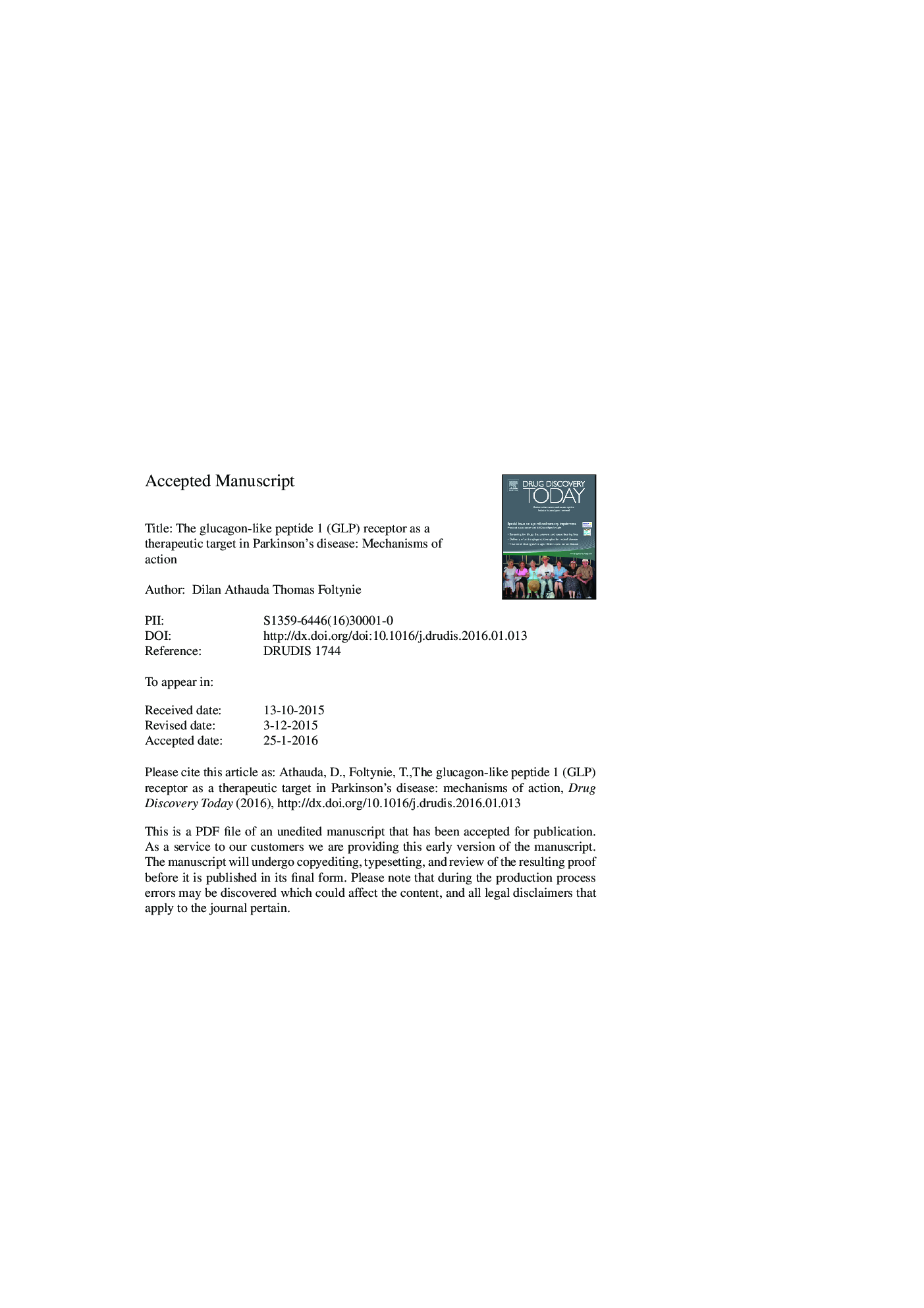| Article ID | Journal | Published Year | Pages | File Type |
|---|---|---|---|---|
| 10885758 | Drug Discovery Today | 2016 | 22 Pages |
Abstract
Growing evidence suggests that agonists of the glucagon-like peptide 1 (GLP-1) receptor provide neuroprotection across a range of experimental models of Parkinson's disease (PD) and, recently, a small proof-of-concept, open-label human trial of exenatide in the treatment moderate severity PD appeared to show persistent improvements in motor and cognitive function. The underlying mechanisms of action remain unclear, but as evidence for the potential use of GLP-1 agonists in treating several neurodegenerative disease mounts, and with several clinical trials of GLP-1 analogues in PD and Alzheimer's disease (AD) currently underway, here we review the molecular mechanisms underlying the neuroprotective effects of GLP-1 analogues in the laboratory and their potential therapeutic utility with particular relevance to PD and PD dementia (PDD).
Related Topics
Life Sciences
Biochemistry, Genetics and Molecular Biology
Biotechnology
Authors
Dilan Athauda, Thomas Foltynie,
